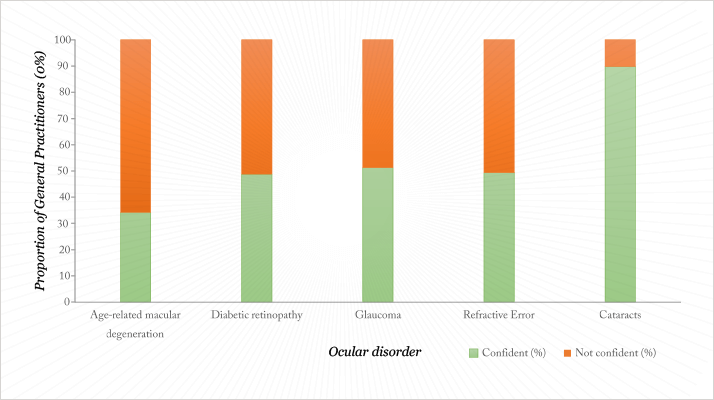
A survey by the Royal College of General Practitioners (RCGP) in collaboration with the UK Vision Strategy Programme has uncovered a significant issue – many GPs do not feel confident in their own abilities to spot the early signs of major ocular disease (1).
Two hundred and five GPs completed a web-based survey – and the numbers were revealing (Figure 1). Of the GPs surveyed, just over a third (34.1 percent) were confident in diagnosing age-related macular degeneration, and around half were confident in diagnosing diabetic retinopathy (48.8 percent), glaucoma (51.2 percent) and refractive error (49.3 percent). More happily, 89.8 percent felt comfortable in their ability to spot the early signs and symptoms of cataracts.
Only a quarter of the GPs reported that they had been offering training and guidance to support their partially sighted and blind patients, and fewer than half said that their practice made information – such as booking and appointment information – available in accessible formats. It’s crucial that general practitioners can confidently diagnose ocular disease as early as possible – meaning that timely referral to optometrists or ophthalmologists occurs, intervention happens earlier, and patients experience not just better visual outcomes, but also a better quality of life. GP training and education is key to making this happen.
References
- 1. The Royal College of General Practitioners “Clinical priority on eye health: summary analysis of UK data”, http://www.vision2020uk.org.uk/ukvisionstrategy/page.asp?section=390§ionTitle=RCGP+Survey+Report. Accessed October 1, 2014.
